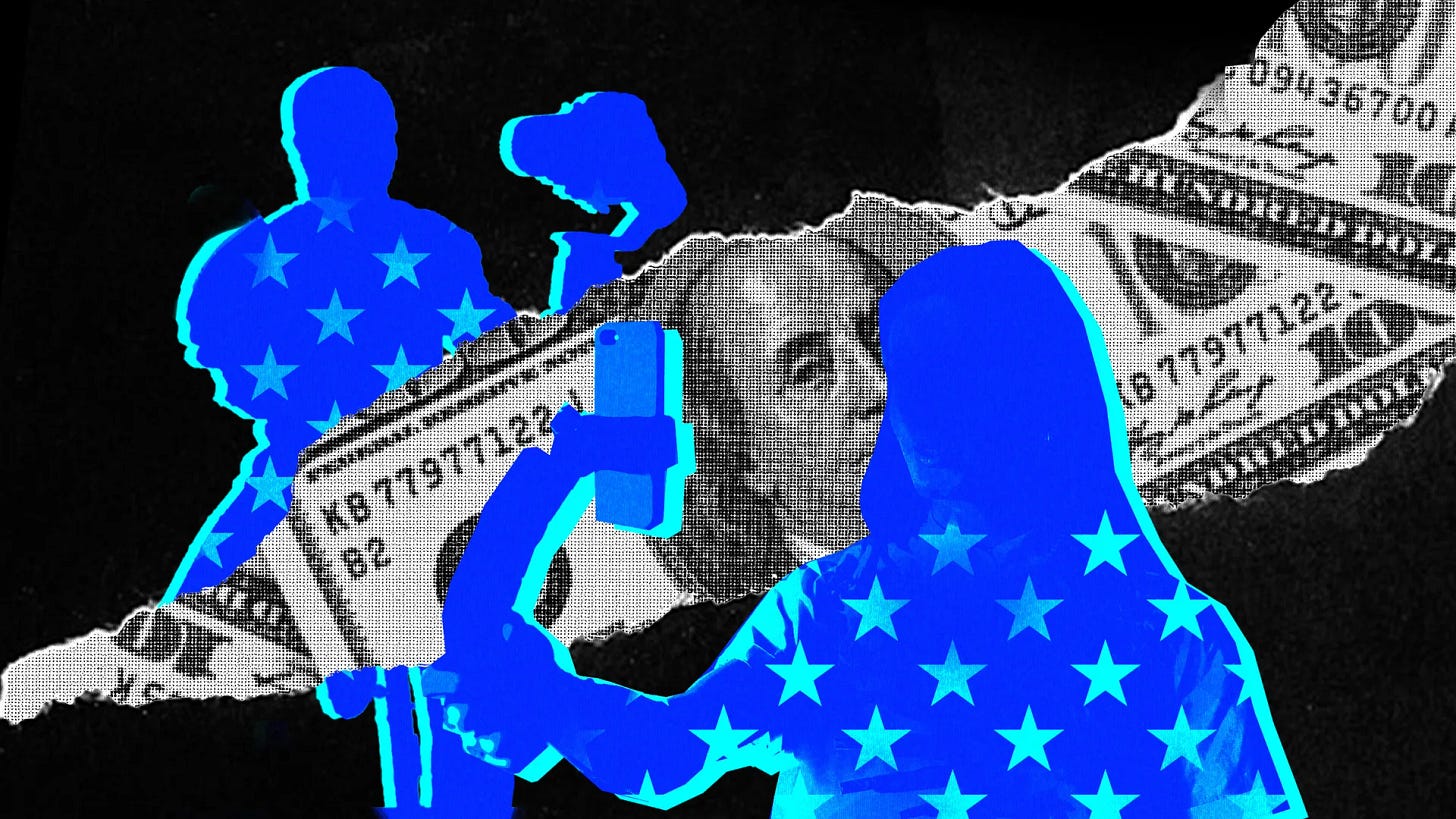How Democrats Secretly Fund Influencers With Dark Money
Chorus, the Sixteen Thirty Fund, and the quiet purchase of “grassroots” voices.
The Program
In late 2024, a nonprofit project called Chorus began paying influencers to push Democratic talking points online. The program is financed by the Sixteen Thirty Fund, a liberal “dark money” group that spent more than $400 million in 2020 on political advocacy.
Influencers in the program receive $250 to $8,000 per month, depending on their reach. Contracts cover more than 90 creators, with a combined audience of about 40 million followers and 100 million weekly views.
The structure runs through Good Influence, a for-profit agency co-founded by influencer Brian Tyler Cohen and strategist Stuart Perelmuter.
Rules and Restrictions
Influencers sign non-disclosure agreements. They cannot reveal the source of their funding.
They must avoid:
Criticizing Democratic leadership
Endorsing Republicans
Posting about sensitive topics like Israel-Palestine or Biden’s foreign policy without pre-approval
Content is required to look personal and spontaneous, even if it is pre-scripted. Daily “newsroom” calls and messaging themes help coordinate output.
Legal Loophole
By routing money through a nonprofit, the program avoids Federal Election Commission disclosure rules. Payments are not labeled with the standard “Paid for by…” disclaimers required for political advertising.
The Sixteen Thirty Fund is known for this model. It channels anonymous donations into progressive campaigns, ballot initiatives, and media projects.
The Faces of Chorus
Some of the creators linked to the program include:
Olivia Julianna – Gen-Z activist, spoke at the 2024 DNC
David Pakman – Progressive YouTube host
Leigh McGowan – “Politics Girl,” political commentator
Arielle Fodor – Teacher with 1.4M TikTok followers
Sander Jennings – Reality TV figure, sibling of Jazz Jennings
Loren Piretra – Former Playboy executive, now with Occupy Democrats
Eliza Orlins – Public defender, reality TV contestant
Suzanne Lambert – Meme creator, branded as “Regina George liberal”
Barrett Adair – Runs a political meme account styled on American Girl dolls
Aaron Parnas – Gen-Z political influencer
Pari (@womeninamerica) – Reproductive rights creator
@thezactivist – Part of the “Good News in Politics” series
Reactions
Some creators declined to join, citing discomfort with the secrecy. Others said the restrictions stifled authentic speech.
The Verge pointed out a contrast. MAGA influencers openly admit their funding and training, which builds trust with their audience. By hiding sponsorship, Democrats may undermine credibility with the very Gen Z audience they want to win.
Why It Matters
Astroturfing: What looks like grassroots opinion is coordinated messaging.
Hypocrisy: Democrats attack Republicans for shadow campaigns while running one of their own.
Transparency: Dark money avoids scrutiny and accountability.
Influence laundering: Anonymous donors shape political narratives through seemingly independent creators.
The Sixteen Thirty Fund calls it support for digital voices. Critics call it deception. Either way, it shows that social media has become the frontline for buying influence.
Stepping Outside the Bubble
When you read articles or watch videos, even mine, do not trap yourself in an information bubble.
Both Democrats and Republicans play the same games.
If you want the right information and the right decisions, you have to step outside the bubble.
Look at these issues from a god’s-eye view. Only then can you judge clearly without being manipulated.
Sources:


I am so disgusted with he absolute lack of integrity in the world. ☺️
This is crazy. Thanks for the education. We need it.